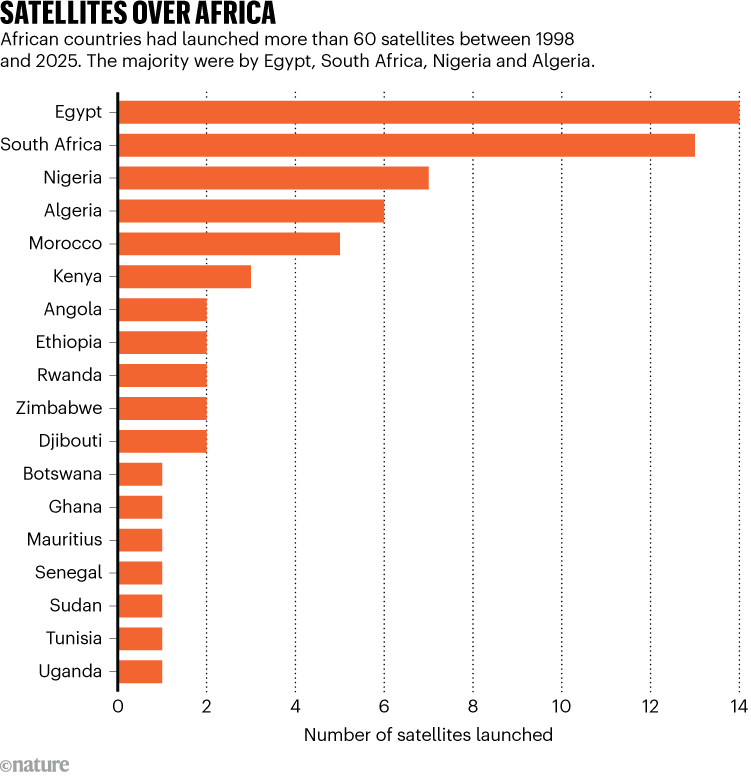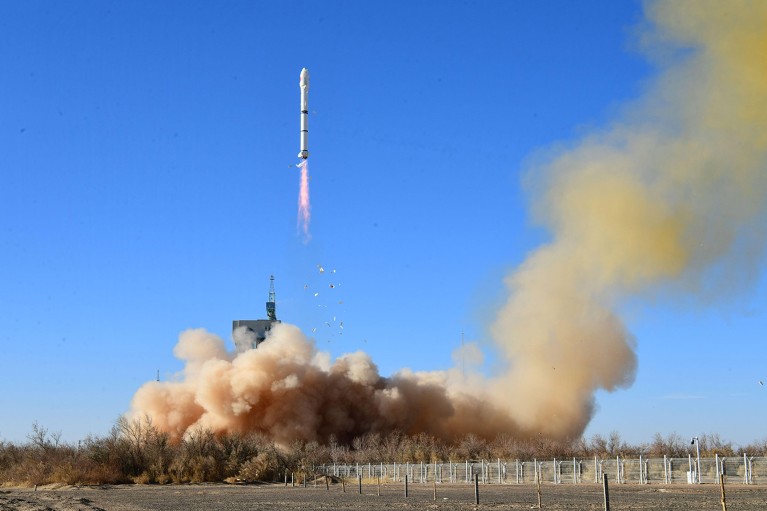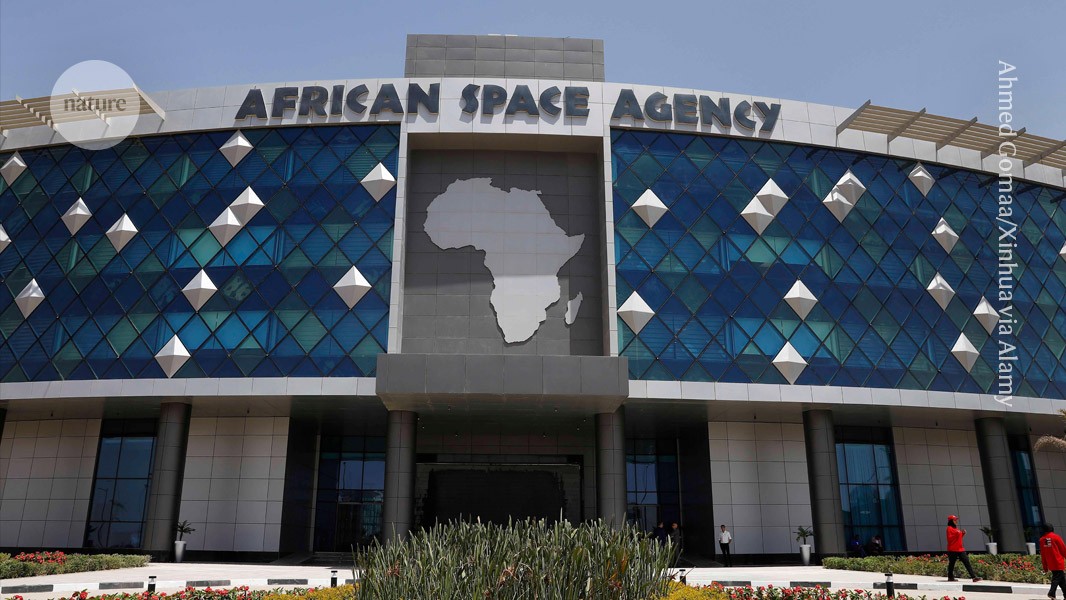Africa’s first continent-wide space agency, the African Space Agency (AfSA), which was inaugurated in April, is looking to secure funding as its first projects get underway.
AfSA is an initiative of the 55-member African Union (AU) and is headquartered in Cairo. It was established to coordinate the work of Africa’s existing efforts in space — more than 20 African countries have space programmes. Priorities will include improving satellite communication, which provides crucial connectivity for rural populations. It also aims to generate and access data from space to track the effects of climate change, provide disaster relief and aid agriculture and water and food security.
However, the agency is not yet fully-staffed and its budget, detailed programme of action and funding sources have not yet been confirmed. AfSA’s core funding will come from the AU’s overall budget, which was US$606 million in 2024. But it will be supplemented with external sources, such as development banks, says Meshack Kinyua Ndiritu, a space engineer with AfSA. Another challenge will be to get countries at different stages of development to agree on common priorities, he adds.
An analysis by market-research firm Space in Africa, based in Lagos, Nigeria, shows that African nations’ combined space budgets amounted to $465 million in 2024. Although this is less than 1% of the global space expenditure, the value has grown by 64% since 2018.

Source: Spacehubs Africa
The European Space Agency, Russia’s Roscosmos and the United Arab Emirates Space Agency all signed cooperation agreements with AfSA at its inauguration event on 20 April. China and the United States also both sent delegations.
Among AfSA’s first joint projects is the Africa–EU Space Partnership, an EU-funded, €45-million ($51 million), four-year project designed to bolster collaboration between the regions and strengthen the space ecosystem in Africa.
AfSA should seek to make connections equally around the globe, while keeping its focus on the continent’s priorities, says Danielle Wood, an aerospace engineer at the Massachusetts Institute of Technology in Cambridge, who specializes in collaboration with African space leaders.
China has also long worked with Africa’s national agencies, and its role in the continent’s space sector is growing. By value, China’s state-backed technology firms won around a fifth of foreign satellite contracts in Africa from 2005 to 2013 (US$871.5 million), which was second to France and more than 3 times the $250 million going to US firms.
Chinese state banks have provided loans for various African space projects, says Rebecca Nadin, a specialist in China’s politics and foreign policy at the ODI Global think tank, based in London. Chinese organizations have built and launched communications and remote-sensing satellites for African countries, as well as provided loans for facilities, and such involvement is likely to grow, says Nadin.

China helped Egypt send remote sensing satellite MISRSAT-2 into orbit in 2023.Credit: Wang Jiangbo/Xinhua via Alamy
The withdrawal of the United States from international-development funding is likely to have consequences. “International partnerships will change over time, and there will be some evolution, which means that the traditional partnerships may not be working for a long time, and we need to devise ways on how to sustain our programs without, or creatively with, existing partnerships,” says Ndiritu. AfSA will need to become innovative in its approaches, Meshack adds.
US universities and NASA already have an array of collaborative projects with African institutions, but US efforts are less unified and strategic than those of China, Nadin adds. China sees Africa as a trading partner and customer for its space-based services, she says.


